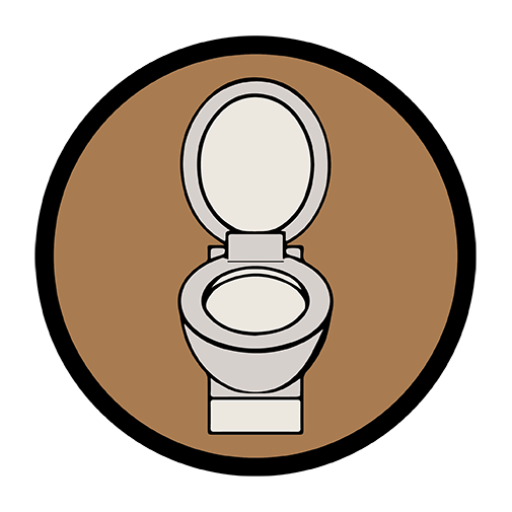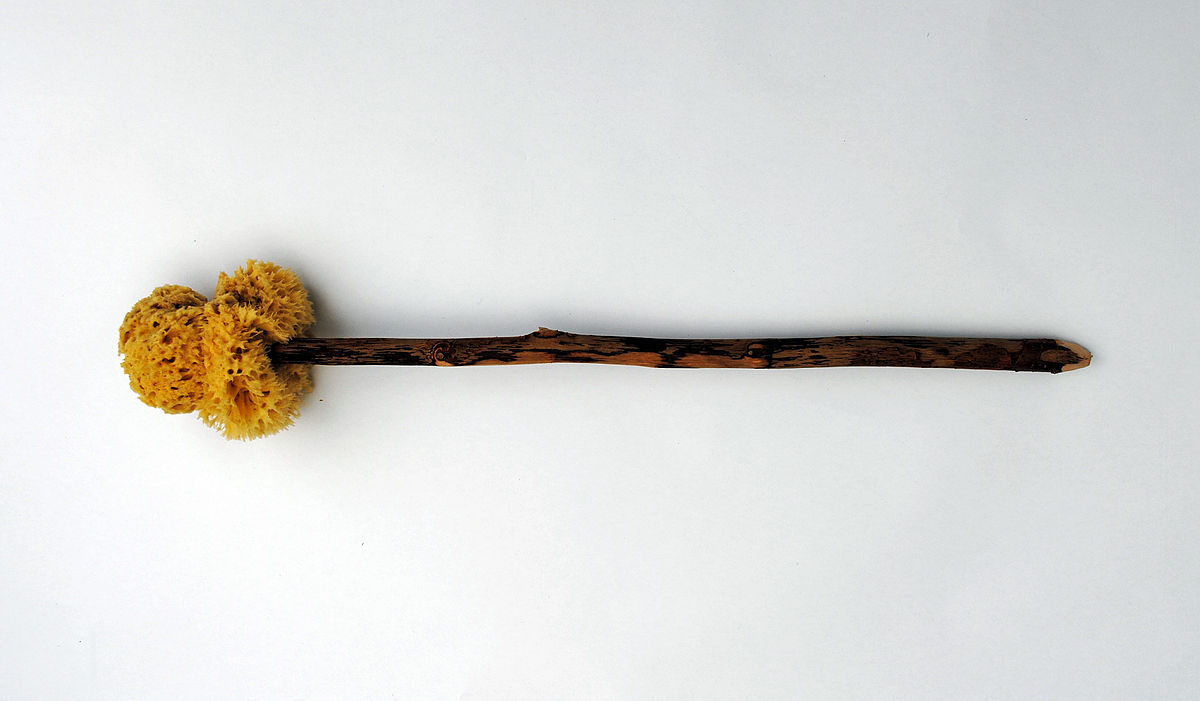The solution in Roman times
Before the invention of toilet paper, people used various methods to clean themselves after using the restroom. The most common practice was using leaves, moss, or other natural materials. However, in ancient Rome, they had a different approach.
In ancient Roman times, a tool called the ‘xylospongium’ or ‘tersorium’ was commonly used for personal hygiene. This tool consisted of a stick with a sponge attached to one end, resembling a modern-day toilet brush or shower sponge. Interestingly, the same xylospongium was shared by all individuals using public latrines (toilets). After each use, the sponge was rinsed with water and vinegar to be ready for the next person.
The shared use of the xylospongium might seem bizarre and unsanitary by today’s standards, but it was a common practice in ancient Roman society. The xylospongium was not only used for cleansing after using the toilet but also served as a toilet brush to clean the latrine itself.
The Roman philosopher Seneca even mentioned the xylospongium in one of his letters from the ‘Epistulae morales ad Lucilium’ (Moral Letters to Lucilius). In this letter, he described a Roman soldier who committed suicide by shoving the xylospongium down his throat, using the tool unconventionally and tragically.
While the concept of the xylospongium may seem peculiar to modern sensibilities, it was a practical solution for personal hygiene in ancient Roman times. It highlights the ingenuity and adaptability of ancient civilizations in addressing basic human needs with the resources available to them.
It is worth noting that the use of leaves, moss, and other natural materials was also prevalent in various ancient cultures around the world, particularly in regions where xylospongium or similar tools were not common. These natural alternatives served as a more sustainable and readily available option for personal cleansing before the advent of modern toilet paper.
Source Focus

